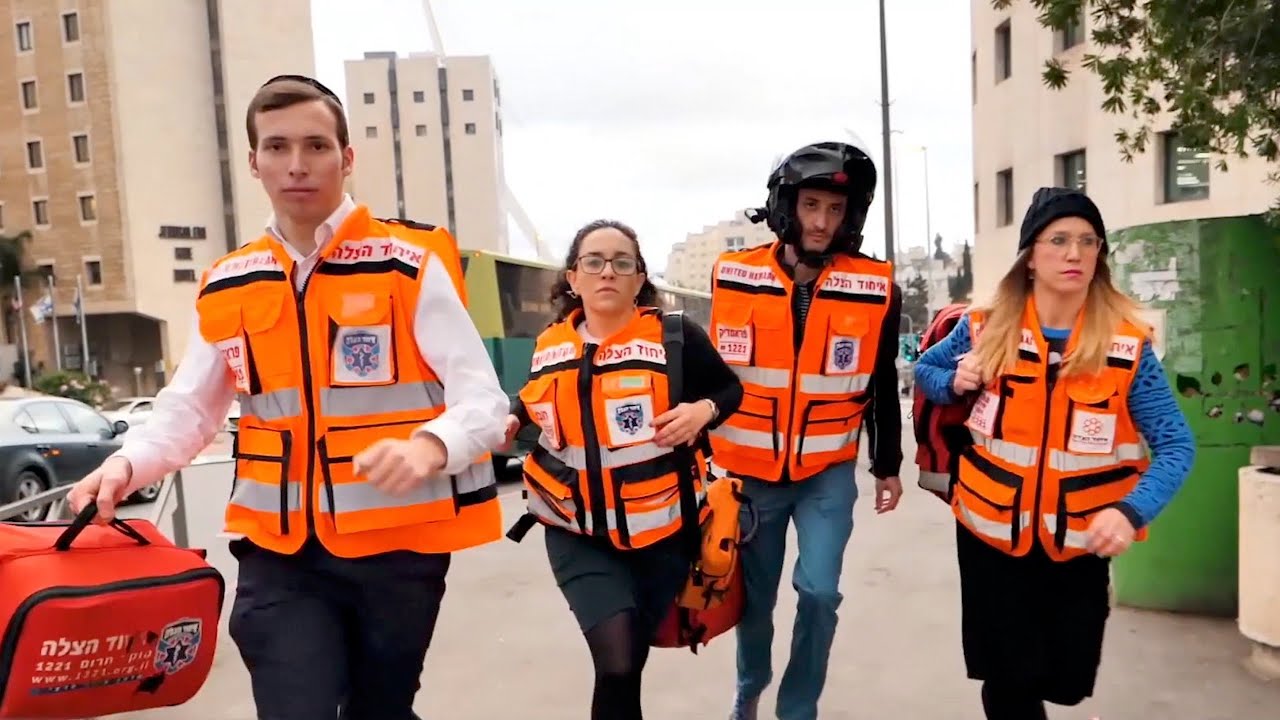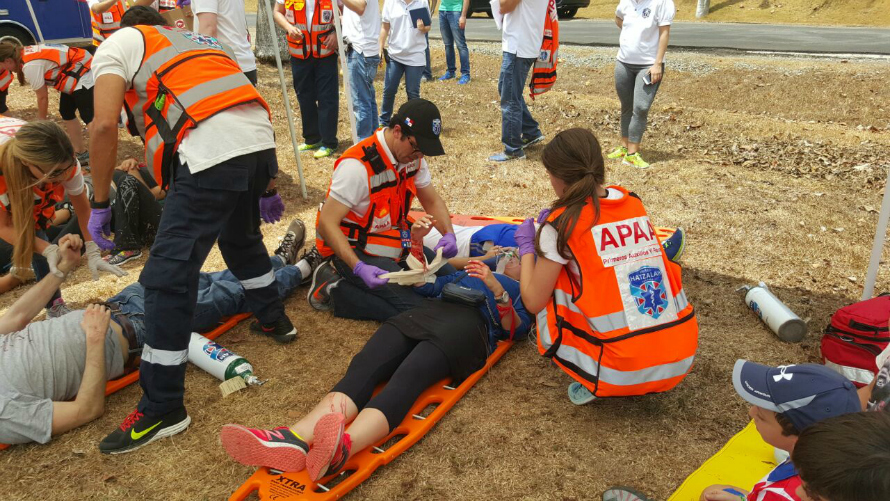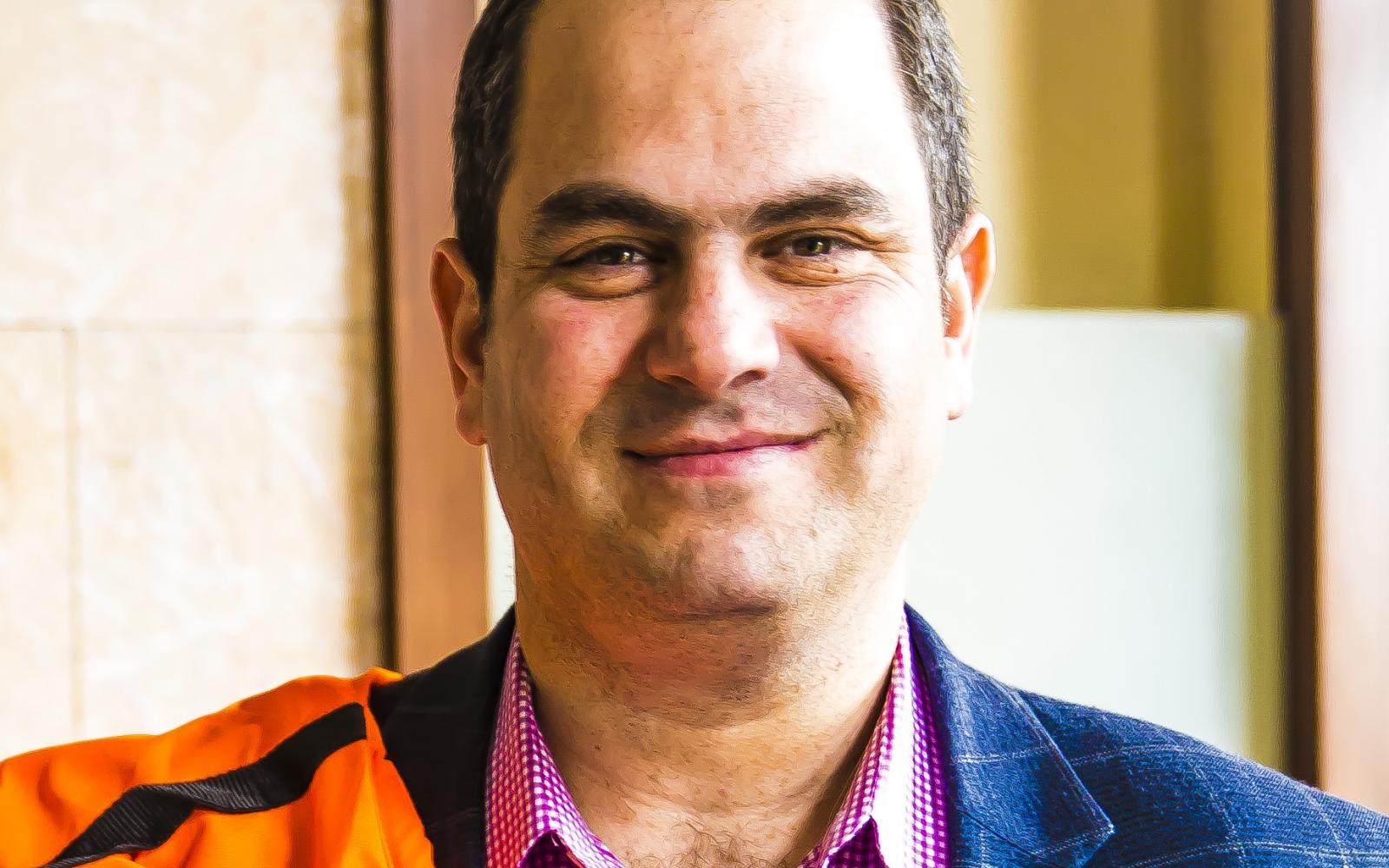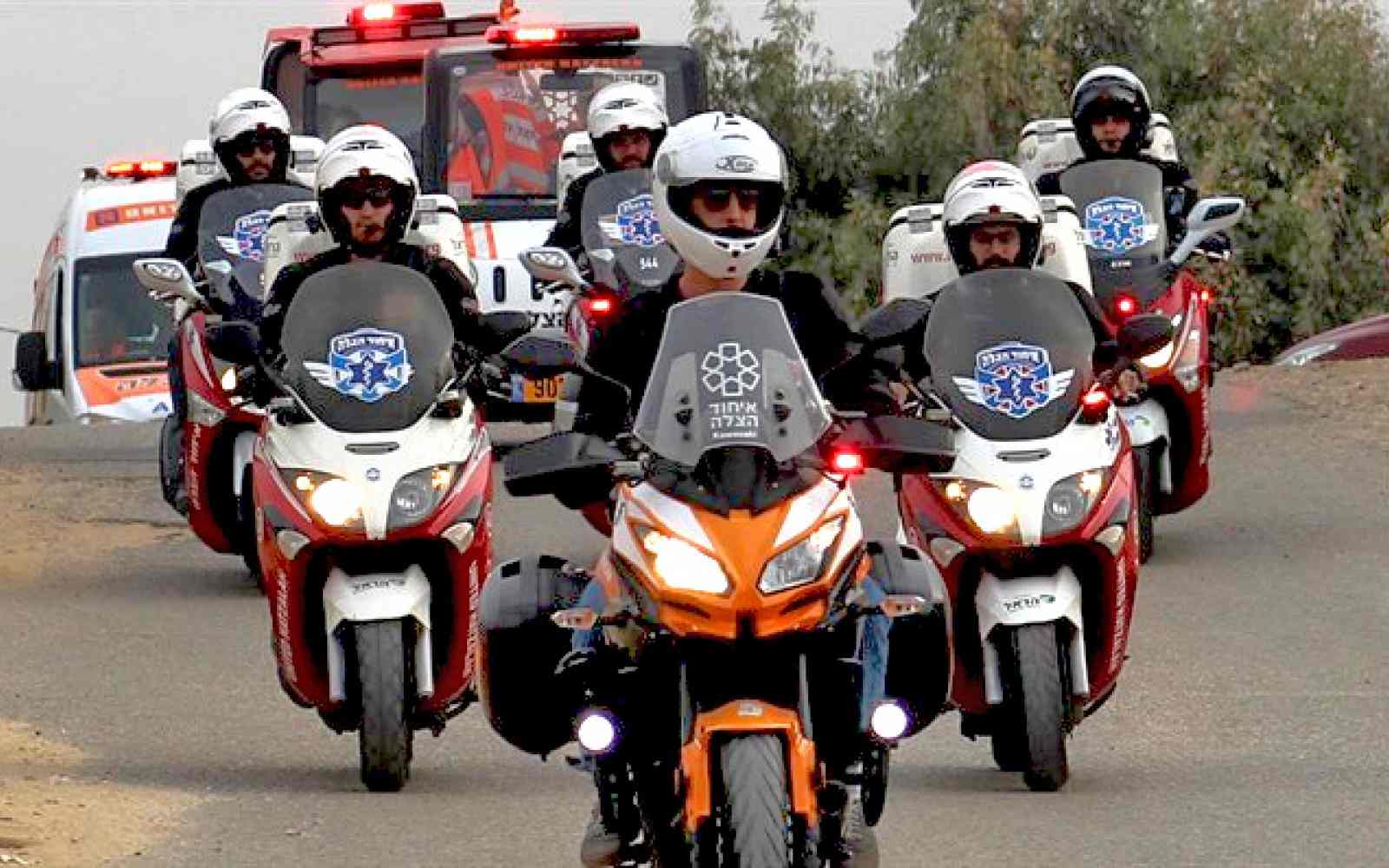As young children in Israel, Ashoka Fellow Eli Beer and his brother witnessed a bus bombing while walk-ing home from school. They felt powerless to help during the wait for an ambulance. At 15, Eli volunteered as an emergency medical technician. He saw how Israel’s traffic congestion and winding alleyways slowed response times, costing lives. Once he saw a child choke to death while waiting for an ambulance, even though a doctor lived blocks away and could have gotten there in time.
At 17, Eli founded the organization United Hatzalah (Hebrew for “rescue”) to provide fast, free, crowdsourced emergency response. He built an inclusive team of volunteer emergency medical technicians (EMTs), paramedics, and doctors—men and women of all backgrounds—to respond to emergencies in their neighborhoods. Traditional ambulance dispatchers refused to help by sharing emergency calls with the Hatzalah network. So Eli bought a police scanner to start with, then developed his own software which uses GPS to track emergency calls and find and dispatch the nearest Hatzalah volunteers. (Ultimately Eli persuaded the Health Minister to connect the government’s systems to Hatzalah’s.)
- Ulana Suprun, former Ukraine Minister of Health
Then Eli introduced “ambucycles” – motorcycles carrying EMT equipment that can weave between vehicles or through narrow road-ways. Emergency response times fell below three minutes and went as low as 90 seconds in major metro areas, making Hatzalah the first on the scene, saving thousands of lives annually. There are now over 800 ambu-cycles deployed in Israeli cities, along with traffic-busting electric bikes and segways. Hatzalah chapters abroad are also making use of helicopters and drones.
“When I talk about the idea of the ambucycle, people respond and tell me: ‘Wow, what a genius idea.’ I tell them, ‘It’s not. This is how people deliver pizza quickly.’ It’s a simple idea to take something that works from a different area and apply it somewhere else to solve a problem like shortening ambulance response times. Our response is the fastest in the world. We call our approach a lifesaving flash mob.”

United Hatzalah coordinates 6,000 volunteers across Israel — Jewish, Muslim, Druze, and Christians — answering 2,000 calls a day (up to more than 700,000 a year with a quick ramp up in recent years). Over 3 million people have been treated to date across all countries United Hatzalah is working in.
To date, Hatzalah has lowered emergency response times in 20 countries. It also sent rescue missions to the Gorkha earthquake in Nepal and Hurricane Matthew in Haiti; and it has conducted trainings in handling mass casualty incidents in Mexico, Panama, and Australia. Hatzalah chapters of volunteers trained to reach the scene of an emergency in three minutes or less are operating in Argentina, Australia, Austria, Belgium, Brazil, Canada, Mexico, Panama, Russia, South Africa, Switzerland, the United Kingdom, Ukraine and the U.S.

This year Hatzalah developed a smart phone app to track COVID-19 exposure. In addition to being first on the scene of COVID-related medical emergencies, they work with religious and community leaders to communicate the need for safety precautions and self-isolation, and to donate personal protective equipment to hospitals in need.
“When someone sees a problem that they are facing in life, they have a few options,” Eli told The Jerusalem Post. “They can let the problem become a stumbling block toward achieving their goals, or they can find a way to solve the problem and achieve their goals. There is also a third option: The person facing the problem can find a solution to the problem that works and then build a framework that will enable everyone access to it. The people who pick the third path are the ones who go on to change the world.”


